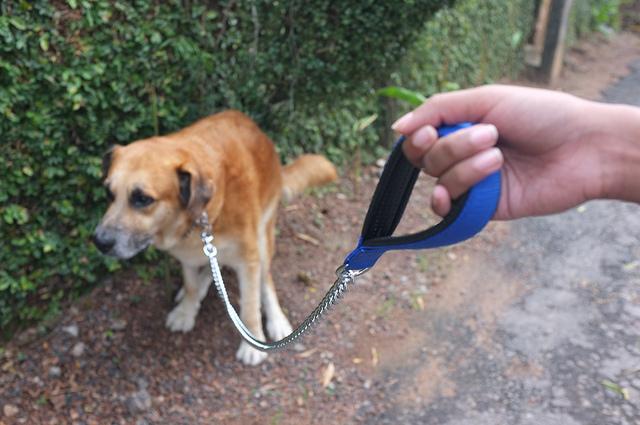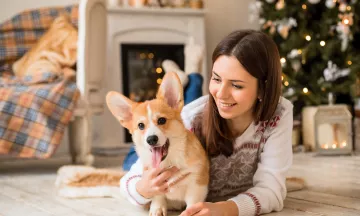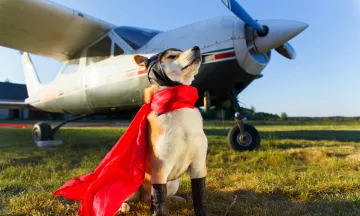Since the introduction of tough state and local council laws, most responsible dog owners now clean up after their four legged friends. But scooping up your dog's poop is actually more beneficial than you might think: your pooch's poo reveals a great deal about his or her current state of health. So, time to overcome your reservations, grab a bag and start studying the brown stuff!
If you love your dog (as we're sure you do!) then you'd do well to keep a close eye on his or her bowel movements and check the composition of his poo. If you make use of a dog sitting or dog walking service, then ask them to report exactly 'what' your dog did during their care and what it looked like. Request that your dog sitter leaves a note for example, containing brief information about the walk, your dog's behaviour and his or her poo. That way you'll notice and can respond to any abnormal patterns much more quickly

What does healthy dog poo look like?
Normal 'healthy' dog excrement is solid and dark brown in colour. Whilst it shouldn't be too hard, you should be able to pick it up relatively easily. Stools that are too soft can result in problems with the anal glands - two sacks located close to the anus, which are filled with a foul smelling substance that gives the poo its marking scent. Every time your dog excretes a solid poo, the anal sacks are emptied. If your dog's poo is too soft, however, then the anal glands may become clogged, causing itching and irritation. Conversely, if it's too hard, it can lead to pain and constipation. On average, healthy dogs poo once or twice a day.
When should you be worried?
If your dog's poo suddenly takes on a different colour, becomes excessively soft or too hard, or starts to really smell, then it's likely an issue with diet. Rubbish in means rubbish out ... So, make sure you feed your dog food with a high quality protein and little in the way of added fillers, such as cereals that make his poo soft. Plenty of exercise, regular worming and a stress-free life will also contribute to a healthy poo production ;-)

If your dog develops diarrhoea, starts to have very frequent bowel movements or become constipated, then it might be a sign something is wrong. There are a number of possible causes: an infection, a virus, worms, parasites or even a food allergy. Always consult your vet if you have any concerns.
So, grab your dog's lead and bring some bags - it's time to get up close and personal with your pooch's poo! Providing a dog sitting or dog walking service? Then don't forget to supply the owner with regular information on the dog's bowel movements. Examining your dog's poo might take some getting used to, but isn't your faithful friend worth it?
Happy dog walking ;-)






